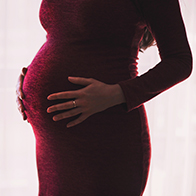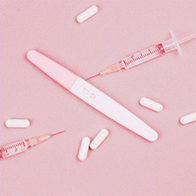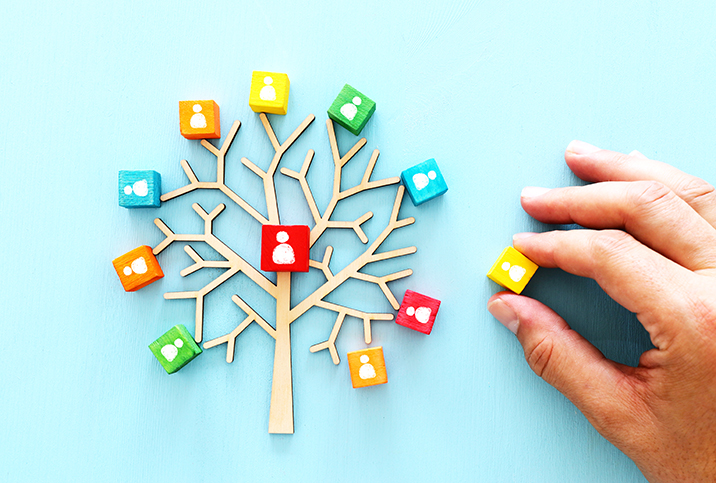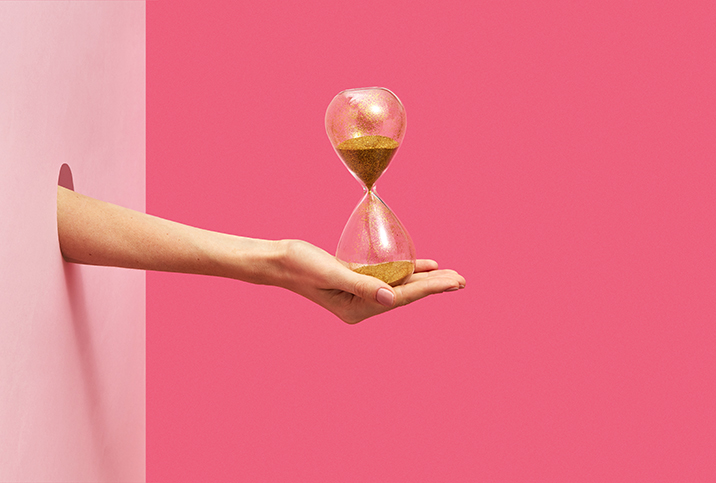What Does an Expanding 'Reproductive Life Span' Mean for Women?
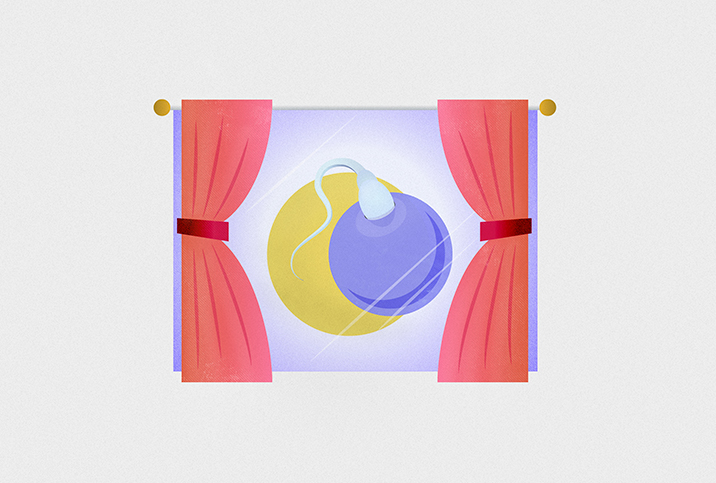
Birth rates have steadily declined in the U.S. for more than a decade, prompting much discussion about the decision to delay motherhood or forgo it altogether—as well as about the complications women may face if they wish to conceive later in life.
For myself and many of my friends, pregnancy was something to avoid throughout our 20s and into our 30s. We had careers to focus on and student loans to pay off. We were swiping on the apps and dating different people. I can't tell you how many times I said to a prospective partner some version of this line: "Sure, I want to have kids someday—but not anytime soon."
I never gave much thought as to when that time might run out.
Women might actually have more time than they used to, according to a recent study published in the Journal of the American Medical Association. The mean reproductive life span—the number of years between menarche (first period) and menopause (the ceasing of menstruation)—has steadily increased over the past six decades for women in the U.S. Data collected from 9,428 women between 1959 and 2018 revealed that the mean age of natural menopause has shifted, increasing from 48.4 to 49.9 years, and the mean age of first period has decreased from 13.5 years to 12.7, increasing the average reproductive life span from 35 to 37.1 years.
Scientists don't exactly know why this fertility window has expanded over the past six decades, although certain "socioeconomic, lifestyle and behavior" factors were found to be significantly linked with the age of natural menopause, the study authors wrote. Smoking and hormone therapy, for example, were associated with shorter reproductive life spans and earlier menopause, while oral contraceptives and more years of education were associated with longer reproductive life spans. And as women continue to wait longer to have children, data indicating an increase of reproductive years could be construed as a positive alignment of cultural norms with biology.
Either way, women shouldn't look at this recent data as predictive of their own reproductive years, warned Annice Mukherjee, M.D., author of "The Complete Guide to the Menopause." "Although trends in menopause age vary due to many factors," she said, "the age of onset of menopause in an individual woman cannot be accurately predicted."
The average age in the U.K. for natural menopause is 51, said Dee Murray, founder and CEO of Menopause Experts, while the average age in the Philippines is 48. "Diet, lifestyle and stress play a really big role," she noted. "And there are many cultural diversities to menopause."
What is potentially more significant than the study's conclusion is the attention being paid to the subject of a woman's reproductive life span, which women often don't think about until they might be approaching the end of it. I'd grown accustomed to the idea that women can have kids into their late 30s and early 40s. I would see them on the subway in New York City, dressed for work, holding the tiny hand of a toddler. I would draw conclusions about their narrative, and overlap it with my own. I must have plenty of time.
"There was once a time when if a woman could no longer produce eggs on her own, she could no longer have a baby," said Mache Seibel, M.D., a menopause expert. "But today, because of egg donation—receiving an egg from another woman and fertilizing it with your partner's sperm—it is perfectly possible for a woman to have a baby beyond her reproductive life span."
The rapid expansion of fertility treatments—including IVI, IVF and egg donation—is both a result of women attempting to conceive later in life and the reason for more successful pregnancies. Despite the decline in overall U.S. birth rates, pregnancies for women between ages 35 and 45 have steadily increased since the 1990s, according to the Centers for Disease Control.
Still, Seibel noted, women face fewer obstacles if they try to have a baby at age 26 versus age 36. "You're more likely to get pregnant [when you're younger]," Seibel explained. "You're less likely to have a miscarriage, and you're less likely to have a child with complications." But if you're hoping to conceive naturally without expensive interventions? "It is Russian roulette, leaving pregnancy or trying for a baby until you're in our 30s or older," Seibel said.
Science and healthcare providers, as well as the culture at large, seem to be playing catch-up when it comes to fertility and reproductive health. Despite the challenges facing those who waited past their most fertile years to consider pregnancy, later pregnancies are becoming more the norm. As a result, terms like "geriatric pregnancy" are falling out of favor (most doctors have replaced it with "advanced maternal age").
But studies like the one cited above may indicate an increase in attention being paid to women's reproductive health.
Awareness of the changes leading up to menopause is especially important for those who are putting off having children until later.
While women in their 30s and 40s probably aren't thinking about menopause just yet, Vanessa Ford, cofounder of MenoLabs, a women's health company offering supplements for menopause, said understanding menopause (and perimenopause, the phase at which reproductive hormones start decreasing) is a crucial component to understanding your reproductive health. Many women don't recognize the early symptoms of perimenopause, which is the beginning of the end of their ability to conceive. And, Ford said, many doctors lack the training to recognize and address those symptoms. "The National Institute of Health just recognized menopause as a research topic worthy of funding in 2016," she said. "That's only five years ago!"
Awareness of the changes leading up to menopause is especially important for those who are putting off having children until later. "[A woman] who plans to be a later-in-life mom should arm herself with as much information as possible," Mukherjee said. That way, she can make more informed decisions around family planning, and be prepared for any challenges that may lie ahead.
Regardless of this new data on reproductive life spans, a woman's ability to conceive can degrade drastically long before menopause. And women shouldn't use averages or trends in reproductive life spans as guidance for their own timelines. Instead, this information can serve to better inform them of changes to be aware of in their body, and the unique and complicated experience of our reproductive years.







